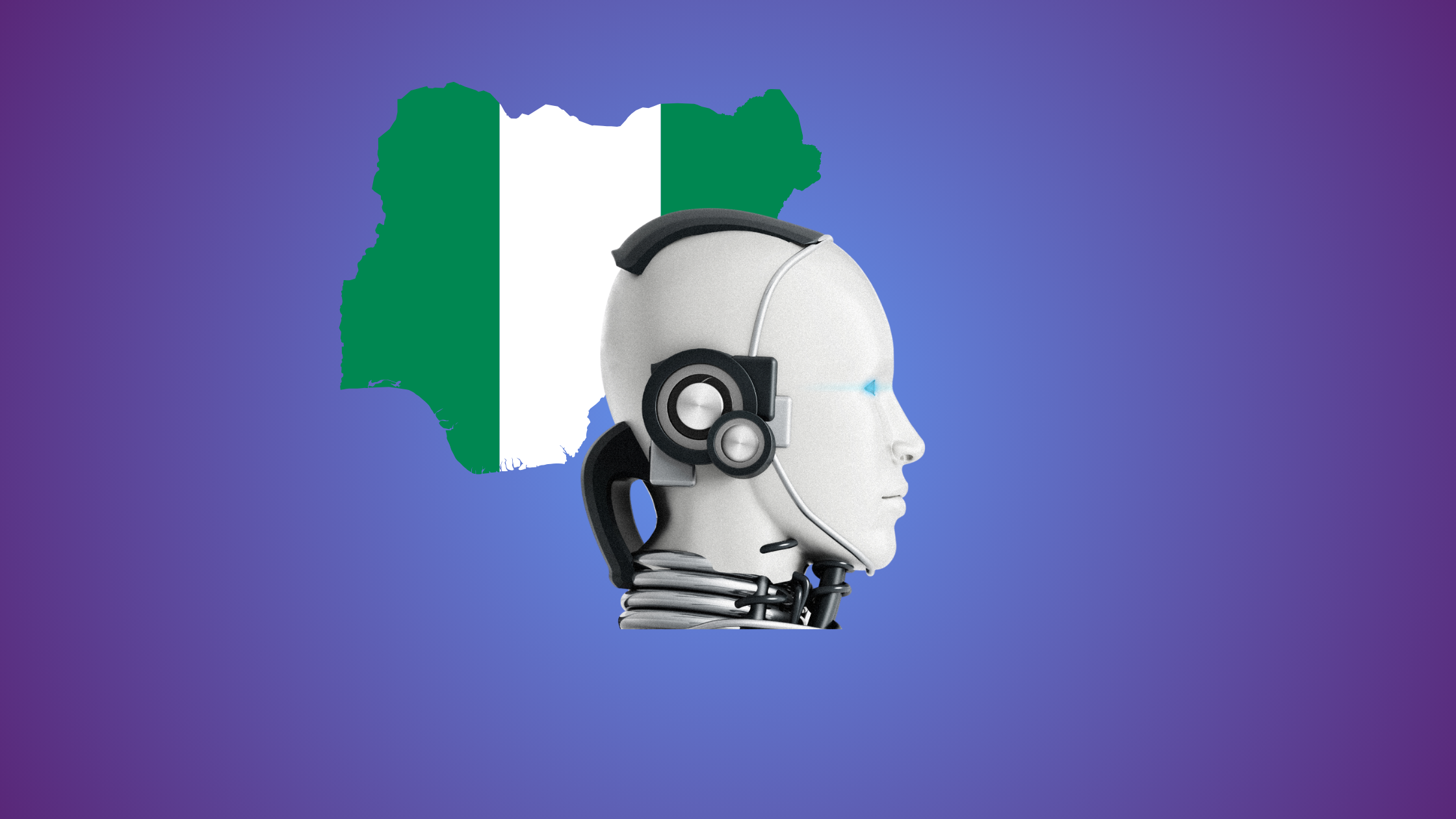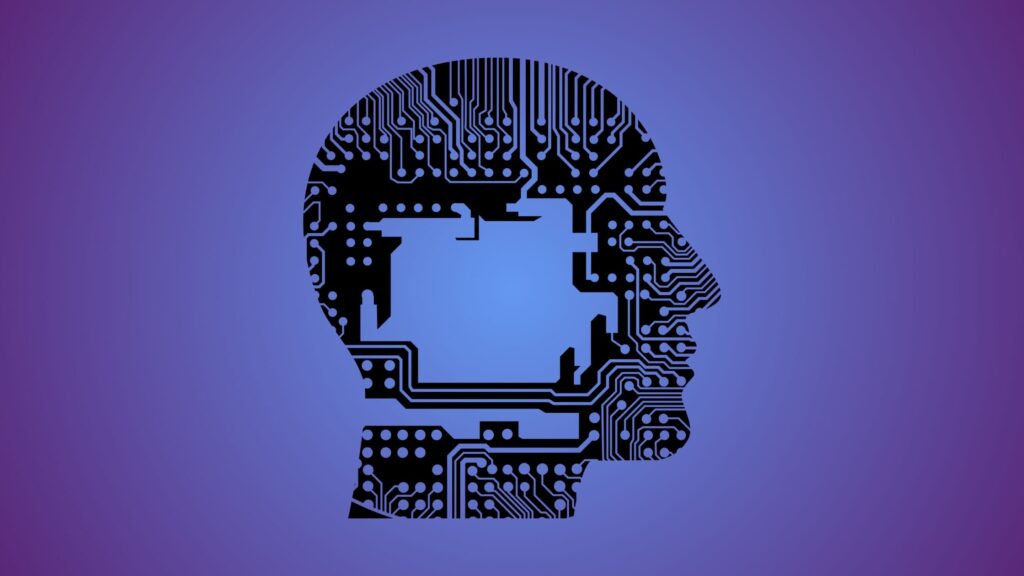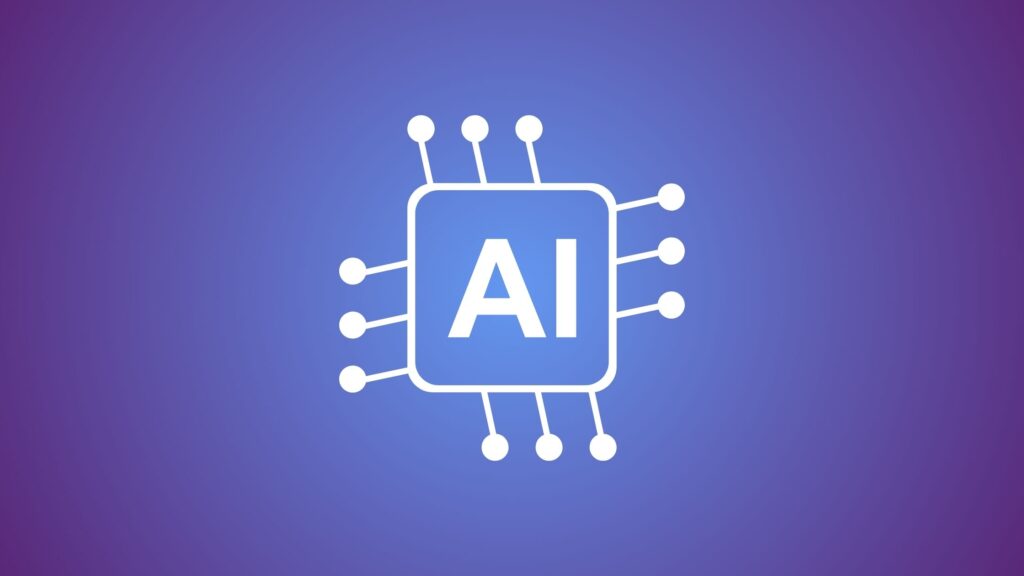
This blog explores AI in Nigeria.
Nigeria, a country with a booming population and a vibrant tech scene, is rapidly embracing the power of artificial intelligence (AI). AI has the potential to revolutionize various sectors, from healthcare and agriculture to education and finance.
This blog post will explore the current state of AI in Nigeria, highlight its potential benefits, and discuss the challenges and opportunities that lie ahead.
Let’s dive right in…
Ready to unlock the power of AI and blockchain for your business?
Ihulabs, a leading software development company in Nigeria, can help you harness these cutting-edge technologies to drive innovation and achieve your goals.
Contact IhuLabs today to discuss your project and learn how our expertise can benefit your organization.
The Growing AI Ecosystem in Nigeria
Nigeria, a nation with a rapidly expanding tech scene, is witnessing a surge in AI adoption and development. From government initiatives to thriving startups, the country’s AI ecosystem is experiencing remarkable growth.
Government Initiatives
Nigeria has recognized the transformative potential of AI and has taken significant steps to foster its development and adoption. The government has implemented various initiatives, including:
- AI Policy Development: The creation of a comprehensive AI policy framework to provide guidelines and regulations for AI development and deployment.
- Investment in AI Research: Allocating substantial funds to support AI research projects and collaborations between government agencies, universities, and private sector companies.
- AI Education and Training: Implementing programs to enhance AI literacy and skills among the population, from primary education to professional development.
- AI Hubs and Innovation Centers: Establishing AI hubs and innovation centers to facilitate collaboration, knowledge sharing, and entrepreneurship in the AI sector.
Research Institutions and Universities
Nigeria’s research institutions and universities play a crucial role in driving AI innovation. These institutions are actively engaged in AI research, education, and talent development. Key contributions include:
- Cutting-Edge Research: Conducting research on various AI applications, such as natural language processing, computer vision, and machine learning.
- Talent Development: Offering AI-related courses and programs to train the next generation of AI professionals.
- Industry Partnerships: Collaborating with private sector companies to develop AI solutions and address real-world challenges.
Startups and Tech Hubs
Nigeria has witnessed a surge in AI startups and tech hubs, creating a vibrant ecosystem for AI innovation. These startups are developing innovative AI-powered solutions across various industries, including:
- Agriculture: Improving agricultural productivity through AI-driven tools for crop monitoring, yield prediction, and pest control.
- Healthcare: Developing AI-powered diagnostic tools, personalized medicine, and drug discovery solutions.
- Finance: Enhancing financial services with AI-based fraud detection, risk assessment, and customer service.
- Education: Creating AI-powered educational platforms, personalized learning tools, and intelligent tutoring systems.
Tech hubs like Yaba Tech Hub, Co-Creation Hub, and Ventures Platform provide essential infrastructure, mentorship, and networking opportunities for AI startups in Nigeria. These hubs foster a collaborative environment that encourages innovation and growth.
10 Examples of Artificial Intelligence in Nigeria
Artificial Intelligence (AI) has rapidly infiltrated various sectors of Nigerian life, transforming industries and improving efficiency. From agriculture to healthcare, AI is making a significant impact.
Let’s explore 10 compelling examples of AI in action within Nigeria.
1. Agriculture
AI is revolutionizing the agricultural sector in Nigeria, addressing pressing challenges and improving productivity. Here are some examples:
- Precision Farming: AI-powered drones and sensors collect data on soil health, crop growth, and weather patterns. This information is used to optimize fertilizer application, irrigation, and pest control, leading to higher yields and reduced environmental impact.
- Crop Disease Detection: AI algorithms can analyze images of crops to identify diseases early, allowing for timely intervention and preventing significant losses.
- Supply Chain Optimization: AI can optimize the transportation and distribution of agricultural products, reducing food waste and ensuring timely delivery to markets.
2. Healthcare
AI is transforming healthcare in Nigeria, improving diagnosis, treatment, and patient outcomes. Some notable examples include:
- Medical Imaging: AI-powered algorithms can analyze medical images, such as X-rays, CT scans, and MRIs, to detect abnormalities and assist in diagnosis.
- Drug Discovery: AI is accelerating drug discovery by simulating molecular interactions and predicting the effectiveness of potential drug candidates.
- Remote Patient Monitoring: AI-enabled devices can monitor patients’ vital signs and symptoms remotely, allowing for early detection of health issues and personalized care.
3. Finance
AI is playing a crucial role in modernizing the Nigerian financial sector, enhancing efficiency and security. Here are some examples:
- Fraud Detection: AI algorithms can analyze transaction data to identify patterns of fraudulent activity, protecting financial institutions and consumers.
- Credit Scoring: AI-powered credit scoring models can assess creditworthiness more accurately, making lending decisions more informed and equitable.
- Personalized Financial Advice: AI-powered chatbots, automated cryptocurrency trading bots, and financial advisors can provide tailored advice and recommendations based on individual financial goals and circumstances.
4. Education
AI is revolutionizing education in Nigeria, providing personalized learning experiences and improving access to quality education. Some examples include:
- Personalized Learning: AI-powered adaptive learning platforms can tailor educational content to the individual needs and pace of each student, ensuring that they receive the support they require.
- Intelligent Tutoring Systems: AI-powered tutors can provide personalized guidance and feedback, helping students to develop critical thinking and problem-solving skills.
- Administrative Tasks: AI can automate administrative tasks such as grading, scheduling, and enrollment, freeing up teachers to focus on instruction.
5. Customer Service
- AI-Powered Chatbots: Many Nigerian businesses are deploying AI-powered chatbots to provide 24/7 customer support, answer frequently asked questions, and resolve issues efficiently.
6. Energy Management
- Smart Grids: AI is being used to optimize the operation of Nigeria’s electrical grid, improving energy efficiency, reducing power losses, and enhancing grid stability.
7. Transportation
- Autonomous Vehicles: While still in development, autonomous vehicles have the potential to revolutionize transportation in Nigeria, improving safety, reducing traffic congestion, and enhancing accessibility.
8. Cybersecurity
- Threat Detection and Prevention: AI algorithms can analyze vast amounts of data to identify and mitigate cybersecurity threats, protecting businesses and individuals from cyberattacks.
9. Natural Language Processing
- Language Translation: AI-powered language translation tools can facilitate communication between people speaking different languages, breaking down language barriers and promoting cultural exchange.
10. Public Safety
- Facial Recognition: AI-powered facial recognition systems can be used to identify criminals, track missing persons, and improve public safety. However, their use raises important ethical and privacy concerns.
Challenges and Opportunities of AI in Nigeria
Nigeria, with its growing population and tech scene, faces AI challenges like infrastructure, data privacy, and talent shortages. However, its large market, startups, and government support offer unique opportunities.
Data Privacy and Security
As AI systems become increasingly sophisticated, so do the concerns surrounding data privacy and security. In Nigeria, the collection and use of large datasets for AI applications raise questions about individual rights, data protection, and the potential for misuse.
- Data Protection Laws: Ensuring that AI development and deployment comply with existing data protection laws, such as the Nigeria Data Protection Regulation (NDPR), is crucial to building public trust.
- Data Breach Risks: The increased reliance on AI systems can expose organizations to new data breach risks, making robust cybersecurity measures essential.
- Consent and Transparency: Obtaining informed consent from individuals for the collection and use of their data is essential. Transparency regarding how AI systems collect, process, and store data is also crucial.
Ethical Considerations
AI raises a range of ethical questions, including bias, job displacement, and the potential for misuse. Addressing these concerns is vital for ensuring that AI benefits society in a responsible and equitable manner.
- Algorithmic Bias: AI systems can perpetuate existing biases present in the data they are trained on, leading to discriminatory outcomes. It is essential to develop algorithms that are fair, transparent, and free from bias.
- Job Displacement: The automation of tasks through AI can lead to job displacement in certain sectors. It is crucial to invest in skills development and education to prepare the workforce for the changing job landscape.
- Misuse and Malintent: AI can be used for harmful purposes, such as spreading misinformation, cyberattacks, and surveillance. It is essential to establish ethical guidelines and regulations to prevent the misuse of AI.
Infrastructure and Talent
Developing the necessary infrastructure and talent to support AI growth in Nigeria is a significant challenge. Investing in research and development, building digital infrastructure, and cultivating AI talent are crucial for realizing the full potential of AI.
- Digital Infrastructure: Access to reliable and affordable internet connectivity is essential for AI development and deployment. Investing in digital infrastructure is crucial for bridging the digital divide.
- Research and Development: Supporting research and development in AI can foster innovation and ensure that Nigeria remains at the forefront of AI advancements.
- Talent Development: Cultivating a skilled workforce in AI requires investing in education and training programs. Collaborating with universities and research institutions can help develop AI talent.
By addressing these challenges and seizing the opportunities, Nigeria can harness the power of AI to drive economic growth, improve social development, and create a more equitable and prosperous society.
The Future of AI in Nigeria: A Bright Horizon
Nigeria’s AI future is bright, driven by its growing tech scene, government support, and investments. This section explores its potential to transform industries and improve lives.
Potential Impact
AI has the potential to significantly transform Nigeria, driving economic growth, improving quality of life, and addressing societal challenges. Here are some key areas where AI can make a profound impact:
- Economic Growth: AI can boost productivity across various industries, create new jobs, and attract foreign investment, contributing to Nigeria’s economic development.
- Social Development: AI can be used to address pressing social issues such as poverty, inequality, and healthcare disparities. For example, AI-powered tools can help identify and support vulnerable populations, improve access to education and healthcare, and enhance social services.
- Innovation and Entrepreneurship: AI can foster innovation and entrepreneurship by enabling the development of new products, services, and business models. This can create opportunities for Nigerian startups and entrepreneurs to compete on a global scale.
Collaboration and Partnerships
To fully realize the potential of AI in Nigeria, it is essential to foster collaboration and partnerships between government, industry, and academia. Here are some key areas of focus:
- Government Support: Governments can play a crucial role in promoting AI development by investing in research and infrastructure, providing incentives for AI startups, and establishing favorable regulatory frameworks.
- Industry Engagement: Businesses can contribute to AI development by investing in AI research, developing AI applications, and collaborating with academia and government agencies.
- Academic Research: Universities and research institutions can play a vital role in driving AI innovation by conducting cutting-edge research, training AI talent, and fostering a culture of innovation.
By working together, government, industry, and academia can create a vibrant and thriving AI ecosystem in Nigeria, positioning the country as a global leader in this transformative technology.
Ready to unlock the power of AI and blockchain for your business?
IhuLabs, a leading software development company in Nigeria, can help you harness these cutting-edge technologies to drive innovation and achieve your goals.
Contact IhuLabs today to discuss your project and learn how our expertise can benefit your organization.
Conclusion
AI has the power to transform Nigeria and unlock new opportunities for economic development and social progress. By addressing the challenges and seizing the opportunities, Nigeria can position itself as a leader in the global AI landscape. As AI continues to evolve, it is essential to ensure that its development and deployment align with ethical principles and benefit society as a whole.


